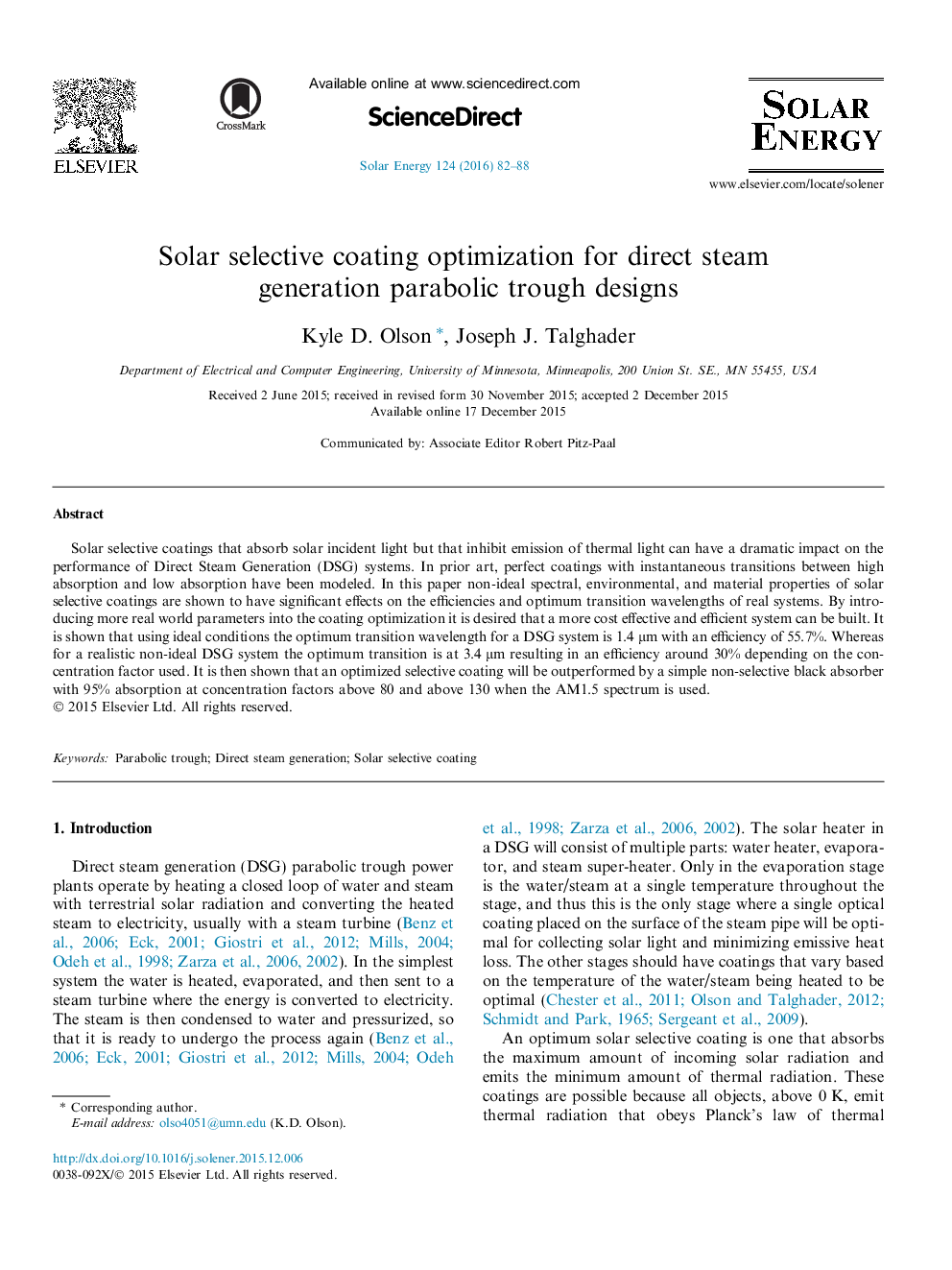| کد مقاله | کد نشریه | سال انتشار | مقاله انگلیسی | نسخه تمام متن |
|---|---|---|---|---|
| 1549441 | 1513094 | 2016 | 7 صفحه PDF | دانلود رایگان |
• We model and optimize solar selective coatings for parabolic troughs.
• Optimized transition wavelength with non-idealities is 3.4 μm vs. the ideal case 1.4 μm.
• Uniform absorbers can outperform selective absorbers under select conditions.
• The largest effect on overall efficiency is the maximum operating temperature.
Solar selective coatings that absorb solar incident light but that inhibit emission of thermal light can have a dramatic impact on the performance of Direct Steam Generation (DSG) systems. In prior art, perfect coatings with instantaneous transitions between high absorption and low absorption have been modeled. In this paper non-ideal spectral, environmental, and material properties of solar selective coatings are shown to have significant effects on the efficiencies and optimum transition wavelengths of real systems. By introducing more real world parameters into the coating optimization it is desired that a more cost effective and efficient system can be built. It is shown that using ideal conditions the optimum transition wavelength for a DSG system is 1.4 μm with an efficiency of 55.7%. Whereas for a realistic non-ideal DSG system the optimum transition is at 3.4 μm resulting in an efficiency around 30% depending on the concentration factor used. It is then shown that an optimized selective coating will be outperformed by a simple non-selective black absorber with 95% absorption at concentration factors above 80 and above 130 when the AM1.5 spectrum is used.
Journal: Solar Energy - Volume 124, February 2016, Pages 82–88
